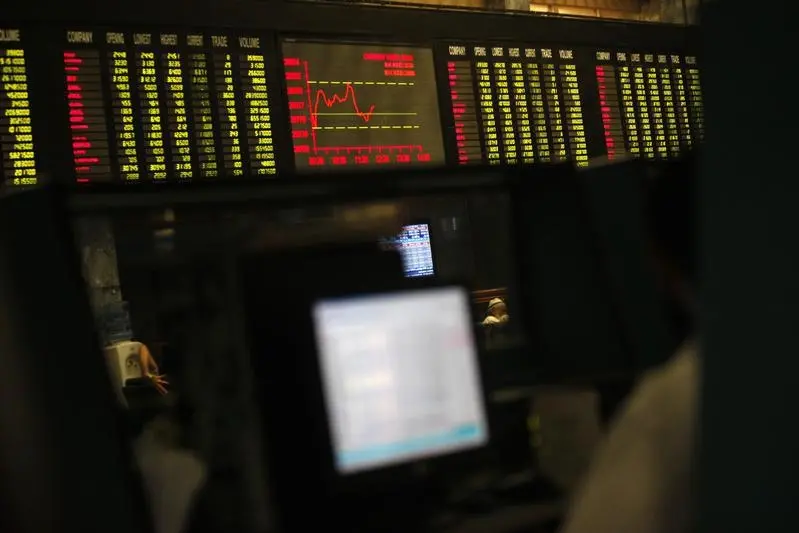PHOTO
By Bernardo Vizcaino
Nov 2 (Reuters) - Djibouti expects to see new entrants in its Islamic finance sector and the government plans to work on a framework to allow the use of sukuk, or Islamic bonds, to fund infrastructure projects, its central bank governor said.
Djibouti, a country of less than a million people located on the Horn of Africa, is a relative newcomer to Islamic finance, having introduced sector-specific legislation in 2011, but authorities hope it can increase banking penetration in rural areas while also attracting foreign investment.
The government has established a national sharia board to help oversee the sector, appointing five members to the independent body last week, central bank governor Ahmed Osman said in an interview.
The move could help Islamic finance by improving consumer perception of the industry and providing greater clarity on contracts which follow religious principles such as bans on interest and gambling.
The government is in discussions with the Saudi-based Islamic Development Bank
"We will be looking a lot at sukuk in the next few years," said Osman, adding that there are around 10 projects which could be financed via sukuk - ranging from railways, pipelines to new roads.
One likely candidate is the state telecom operator due to the availability of assets to structure a sukuk, Osman said on the sidelines of the International Islamic Banking Summit Africa, which the central bank is hosting this week.
The central bank has avoided double-taxation of Islamic contracts through temporary exemptions, but it is in discussions with the Ministry of Finance to make those exemptions permanent, Osman added.
NEW ENTRANTS
The central bank is also in discussions with two lenders seeking to open Islamic windows of their own. Currently three of Djibouti's 10 banks are Islamic: Saba Islamic Bank, Salaam African Bank and East Africa Bank.
The sector is attractive due to its faster growth - estimated at around 16 percent versus 10 percent for conventional banks - but also for its low levels of bad debt.
"Islamic finance is more secure, as there is a direct link between financing and the underlying assets," Osman said.
Islamic banks held 16.2 percent of banking assets and 14.3 percent of deposits as of September, central bank data shows.
Their non-performing loans reached 3.1 percent of total lending as of June, compared to 19.5 percent for conventional banks.
(Editing by Simon Cameron-Moore) ((Bernardo.Vizcaino@thomsonreuters.com; Telf: +61293218168; Reuters Messaging: bernardo.vizcaino.thomsonreuters.com@reuters.net))
Nov 2 (Reuters) - Djibouti expects to see new entrants in its Islamic finance sector and the government plans to work on a framework to allow the use of sukuk, or Islamic bonds, to fund infrastructure projects, its central bank governor said.
Djibouti, a country of less than a million people located on the Horn of Africa, is a relative newcomer to Islamic finance, having introduced sector-specific legislation in 2011, but authorities hope it can increase banking penetration in rural areas while also attracting foreign investment.
The government has established a national sharia board to help oversee the sector, appointing five members to the independent body last week, central bank governor Ahmed Osman said in an interview.
The move could help Islamic finance by improving consumer perception of the industry and providing greater clarity on contracts which follow religious principles such as bans on interest and gambling.
The government is in discussions with the Saudi-based Islamic Development Bank
"We will be looking a lot at sukuk in the next few years," said Osman, adding that there are around 10 projects which could be financed via sukuk - ranging from railways, pipelines to new roads.
One likely candidate is the state telecom operator due to the availability of assets to structure a sukuk, Osman said on the sidelines of the International Islamic Banking Summit Africa, which the central bank is hosting this week.
The central bank has avoided double-taxation of Islamic contracts through temporary exemptions, but it is in discussions with the Ministry of Finance to make those exemptions permanent, Osman added.
NEW ENTRANTS
The central bank is also in discussions with two lenders seeking to open Islamic windows of their own. Currently three of Djibouti's 10 banks are Islamic: Saba Islamic Bank, Salaam African Bank and East Africa Bank.
The sector is attractive due to its faster growth - estimated at around 16 percent versus 10 percent for conventional banks - but also for its low levels of bad debt.
"Islamic finance is more secure, as there is a direct link between financing and the underlying assets," Osman said.
Islamic banks held 16.2 percent of banking assets and 14.3 percent of deposits as of September, central bank data shows.
Their non-performing loans reached 3.1 percent of total lending as of June, compared to 19.5 percent for conventional banks.
(Editing by Simon Cameron-Moore) ((Bernardo.Vizcaino@thomsonreuters.com; Telf: +61293218168; Reuters Messaging: bernardo.vizcaino.thomsonreuters.com@reuters.net))





















